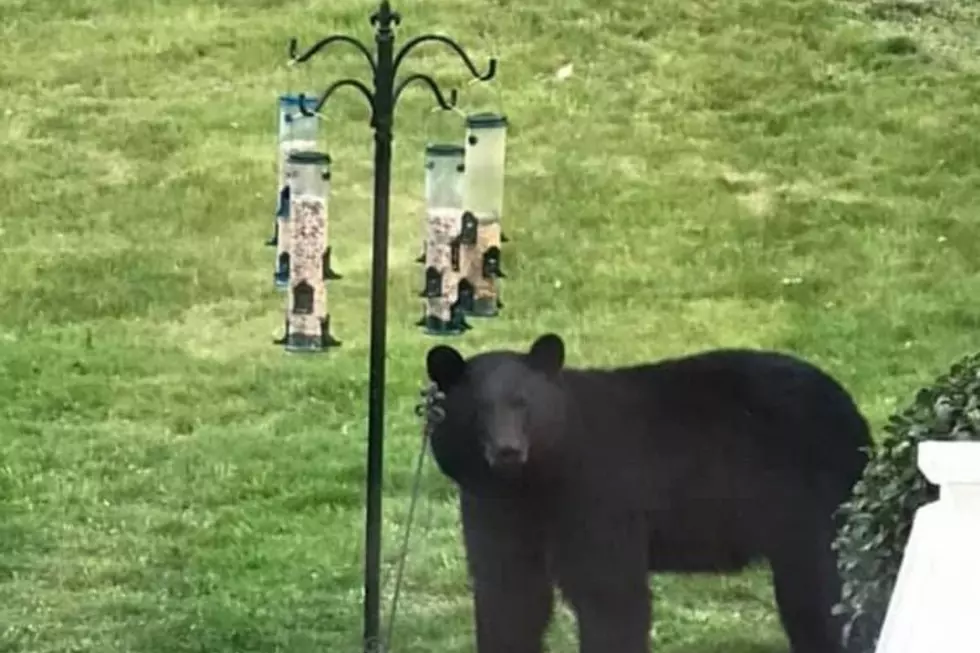
Bear Sightings in Massachusetts Becoming More Common
Here in eastern Massachusetts, we have our fair share of wild animal sightings including deer, wild turkey -- and now bears.
Yes, we've had bear sightings in the area lately.
Recently a neighborhood in Easton was put on alert when someone spotted a bear behind a school. They took to a neighborhood app to let others know.

So what brings these not-so-small animals to our backyards? Experts say bears have been migrating east more each year. This year, the bears are stepping out of their territories in search of water.
Bears will typically indulge in berries so I don't think they are looking at us as their next meal. You may see bears gravitate toward bird feeders as well. According to the Massachusetts Division of Fisheries and Wildlife: "If you live in an area with bears, it is best to not set out bird feeders. In general, most bears are denned from mid-December through February."
Bears typically won't attack humans unless they are protecting their young or feel threatened.
While humans are usually not a part of a bear's diet they will eat meat. You may want to double-check that you don't have an uninvited guest scrummaging around for some food in your backyard.
Mass Wildlife does have a recommendation for us if we do see a bear in our backyards;
"If a bear is feeding in an area where it doesn’t belong, such as your yard, on a porch, or in a dumpster, step outside, yell and make lots of noise. The bear will usually leave."
I don't know about you by my butt is staying inside if I see a bear in my backyard and I'm locking the doors.
Not going to lie. These bears don't look anything like the teddy bears I had as a kid.
I'll be staying clear of these bad boys if I can and thank goodness for technology and these neighborhood apps.
How to Prevent Conflict With Coyotes During Mating Season on the SouthCoast
More From WFHN-FM/FUN 107









